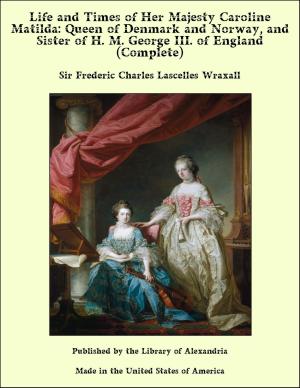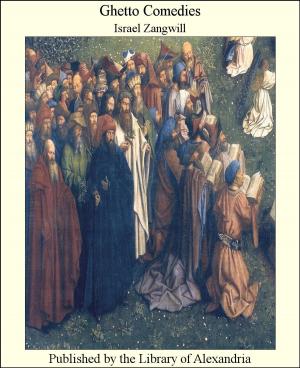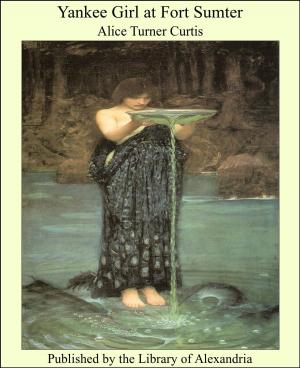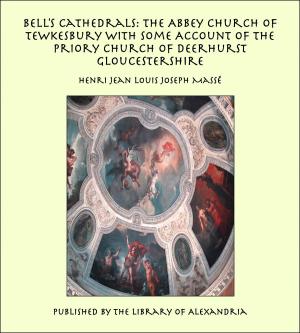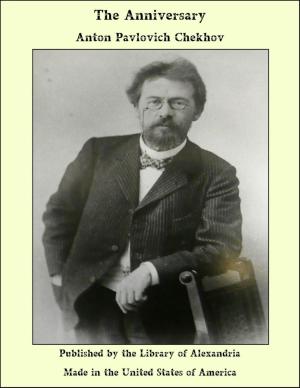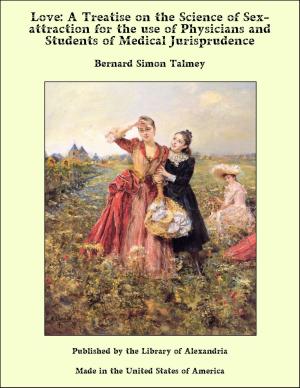Town Life in the Fifteenth Century (Complete)
Nonfiction, Religion & Spirituality, New Age, History, Fiction & Literature| Author: | Alice Stopford Green | ISBN: | 9781465610553 |
| Publisher: | Library of Alexandria | Publication: | March 8, 2015 |
| Imprint: | Language: | English |
| Author: | Alice Stopford Green |
| ISBN: | 9781465610553 |
| Publisher: | Library of Alexandria |
| Publication: | March 8, 2015 |
| Imprint: | |
| Language: | English |
There is nothing in England to-day with which we can compare the life of a fully enfranchised borough of the fifteenth century. Even the revival of our local institutions and our municipal ambition has scarcely stirred any memory of the great tradition of the past, of the large liberties, the high dignities and privileges which our towns claimed in days when the borough was in fact a free self-governing community, a state within the state, boasting of rights derived from immemorial custom and of later privileges assured by law. The town of those earlier days in fact governed itself after the fashion of a little principality. Within the bounds which the mayor and citizens defined with perpetual insistence in their formal perambulation year after year it carried on its isolated self-dependent life. The inhabitants defended their own territory, built and maintained their walls and towers, armed their own soldiers, trained them for service, and held reviews of their forces at appointed times. They elected their own rulers and officials in whatever way they themselves chose to adopt, and distributed among officers and councillors just such powers of legislation and administration as seemed good in their eyes. They drew up formal constitutions for the government of the community, and as time brought new problems and responsibilities, made and re-made and revised again their ordinances with restless and fertile ingenuity, till they had made of their constitution a various medley of fundamental doctrines and general precepts and particular rules, somewhat after the fashion of an American state of modern times. No alien officer of any kind, save only the judges of the High Court, might cross the limits of their liberties; the sheriff of the shire, the bailiff of the hundred, the king’s tax-gatherer or sergeant-at-arms, were alike shut out. The townsfolk themselves assessed their taxes, levied them in their own way, and paid them through their own officers.
There is nothing in England to-day with which we can compare the life of a fully enfranchised borough of the fifteenth century. Even the revival of our local institutions and our municipal ambition has scarcely stirred any memory of the great tradition of the past, of the large liberties, the high dignities and privileges which our towns claimed in days when the borough was in fact a free self-governing community, a state within the state, boasting of rights derived from immemorial custom and of later privileges assured by law. The town of those earlier days in fact governed itself after the fashion of a little principality. Within the bounds which the mayor and citizens defined with perpetual insistence in their formal perambulation year after year it carried on its isolated self-dependent life. The inhabitants defended their own territory, built and maintained their walls and towers, armed their own soldiers, trained them for service, and held reviews of their forces at appointed times. They elected their own rulers and officials in whatever way they themselves chose to adopt, and distributed among officers and councillors just such powers of legislation and administration as seemed good in their eyes. They drew up formal constitutions for the government of the community, and as time brought new problems and responsibilities, made and re-made and revised again their ordinances with restless and fertile ingenuity, till they had made of their constitution a various medley of fundamental doctrines and general precepts and particular rules, somewhat after the fashion of an American state of modern times. No alien officer of any kind, save only the judges of the High Court, might cross the limits of their liberties; the sheriff of the shire, the bailiff of the hundred, the king’s tax-gatherer or sergeant-at-arms, were alike shut out. The townsfolk themselves assessed their taxes, levied them in their own way, and paid them through their own officers.





